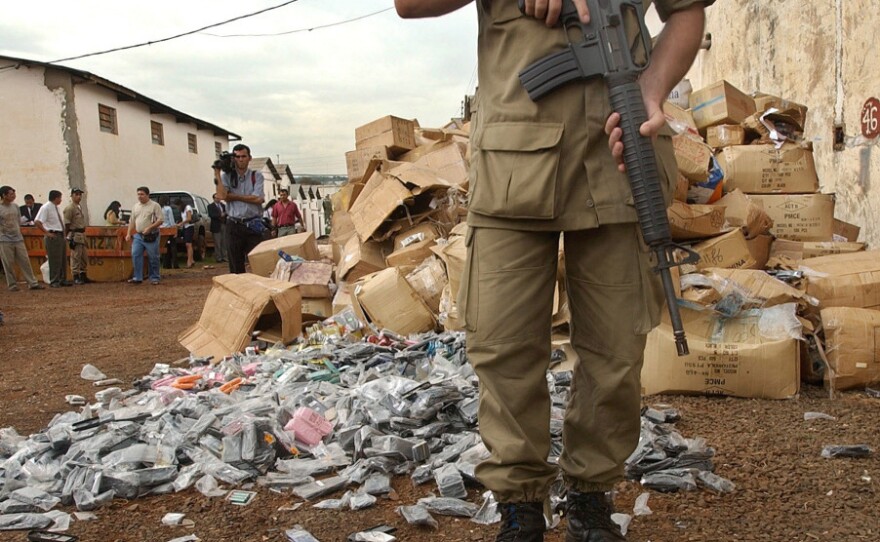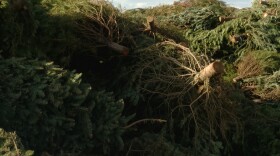The novel Triple Crossing opens at the San Ysidro crossing in San Diego, where a new border patrol officer named Valentine Pescatore is on duty.
After Pescatore chases down a family of three trying to cross the border, he does something unusual.
"He slips them money," author Sebastian Rotella tells Guy Raz, host of weekends on All Things Considered.
"That's actually based on reality," says Rotella, an investigative reporter who covered South America for the Los Angeles Times for 15 years and is now a reporter for ProPublica. "There's that mix in this character of toughness but this profound compassion."
In writing his first novel, Rotella says, he enjoyed combining "the liberty and authority of writing fiction with the rigor of trying to make it as authentic as possible."
"So the big and the small details — from incidents to the way people talk, the slang, the subcultures, the way they dress, the way a shootout happens, the way a prison is in Tijuana — are all drawn from in-depth experience," he says.
Whom To Trust?
After he gets in trouble, investigators recruit Pescatore to infiltrate a powerful Mexican mafia family under the auspices of trying to bust his corrupt boss.
"That happens at the border all the time," Rotella says, "and it creates great ambiguity — this world of who's undercover, who's really corrupt, who's pretending to be corrupt, which side people are on."
Rotella says he tried to explore that paranoia and describe the tensions and danger of that world. He writes vividly about Pescatore's experience working undercover with a Mexican gang that hires young assassins to carry out its dirty work.
"I tried to explore the power that this culture has over these kids," he says. "There's something about that narcoculture and the music and the style and the swagger and the power that comes with the gun and the money."
Rotella says he tried to be careful, however, not to describe the violence to the point that it became grotesque or overdone.
A Crossroads
Pescatore travels with the Mexican gang to Ciudad del Este, Paraguay, which is known as the "triple border" because it's where Argentina, Brazil and Paraguay meet.
Rotella says the triple border started getting attention in the '90s after terrorist groups were traced back to connections there.
"It's been a long-time base for all kinds of commerce, enormous amounts of illicit commerce — of contraband, of drugs smuggling, arms smuggling, foreign mafias," Rotella says. "And as Mexican cartels expanded throughout Latin America and across the ocean ... there have been people arrested directly connected to the Mexican cartels at the triple border because it's kind of this crossroads."
Both the triple border and the U.S.-Mexico border are dangerous places to be a journalist, he says.
"It's a place of great extremes, so of creativity and violence, of cruelty and heroism, sort of the best and the worst of globalization all mixed together."
Copyright 2023 NPR. To see more, visit https://www.npr.org. 9(MDAzMjM2NDYzMDEyMzc1Njk5NjAxNzY3OQ001))






